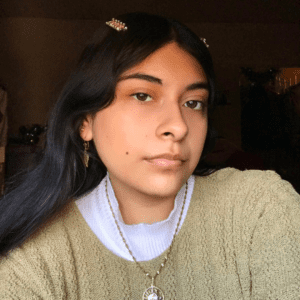
Trigger Warning: Mentions of death and self-injurious behaviors
I entered my first year at John Jay College of Criminal Justice when the pandemic first started and spread throughout NYC. The first time I realized the severity of the COVID-19 situation was when I went to class and more than half of the students did not show up. My college was the first CUNY school to close down. While I thought the COVID-19 virus would be around for just that one week, it’s two years later and worse than I ever imagined.
Being in quarantine for about four months is a traumatizing experience I never want to face again. Even being outside to go grocery shopping felt like a movie about the world ending because there were barely any people outside. My sister and I were so paranoid to catch this deadly worldwide virus that could possibly hospitalize us. I feared for the life of my family and friends. Even until this day, when I wake up in the morning, I still can’t believe this happened and how much it changed my life.
Every single individual on this planet knows at least one person who had COVID-19 or died from this virus. My grandpa was the first one in my family to get Covid and had to be hospitalized. This severely affected my dad, causing him to go into a deep state of depression. My dad was my best friend and one of the happiest people I knew. He was always there for his loved ones and gave the best advice when he thought we needed it. Seeing my dad not wanting to talk to anyone and being alone with his thoughts made me see another version of him. I wanted to be there for him, but I was scared. My family tried to help him and keep his mind occupied from the news, but it was very difficult trying to find a therapist. My dad even contemplated suicide and leaving a note for us. At the time, I thought I made my dad unhappy. It seemed like everything I did was wrong because he would constantly yell at me for the smallest things. Even my dad’s family blamed me, my mom, and my sisters for why my dad was in a bad state and “not helping him.” My dad was scared because he was worried for the health of his dad and I don’t blame him. But I needed my dad to be here for me too. I was mentally struggling with all the changes going on and the death of a close friend.
My family did game nights and talked about past memories to cheer my dad up. I wanted my dad to get better, so I tried to disregard my own feelings to prioritize him. My mind was preoccupied with life events that I would sometimes forget about my school deadlines. I was lucky enough to have professors who were understanding of the students’ situations, but not every student was lucky. I stopped seeking mental health resources and finding a counselor at my college because my emails had no responses from them. It’s three years later and the mental health resources in my college are still not effective because there is a two-month waitlist to seek ongoing counseling. The pandemic and my experience with my dad still affects me to this day.
My story is not the only one that involves a college student, who deserves to have access to efficient resources. Students were already facing mental health challenges prior to the pandemic, but now, students need more assistance and resources. There should be invested in Campus Mental Health Counseling (A302/S844) and ensuring that there are more counselors of color to better understand the situations CUNY students go through.
Kate Ortigoza is a member of Young Invincibles-New York’s 2022 Spring Young Advocates Program.
